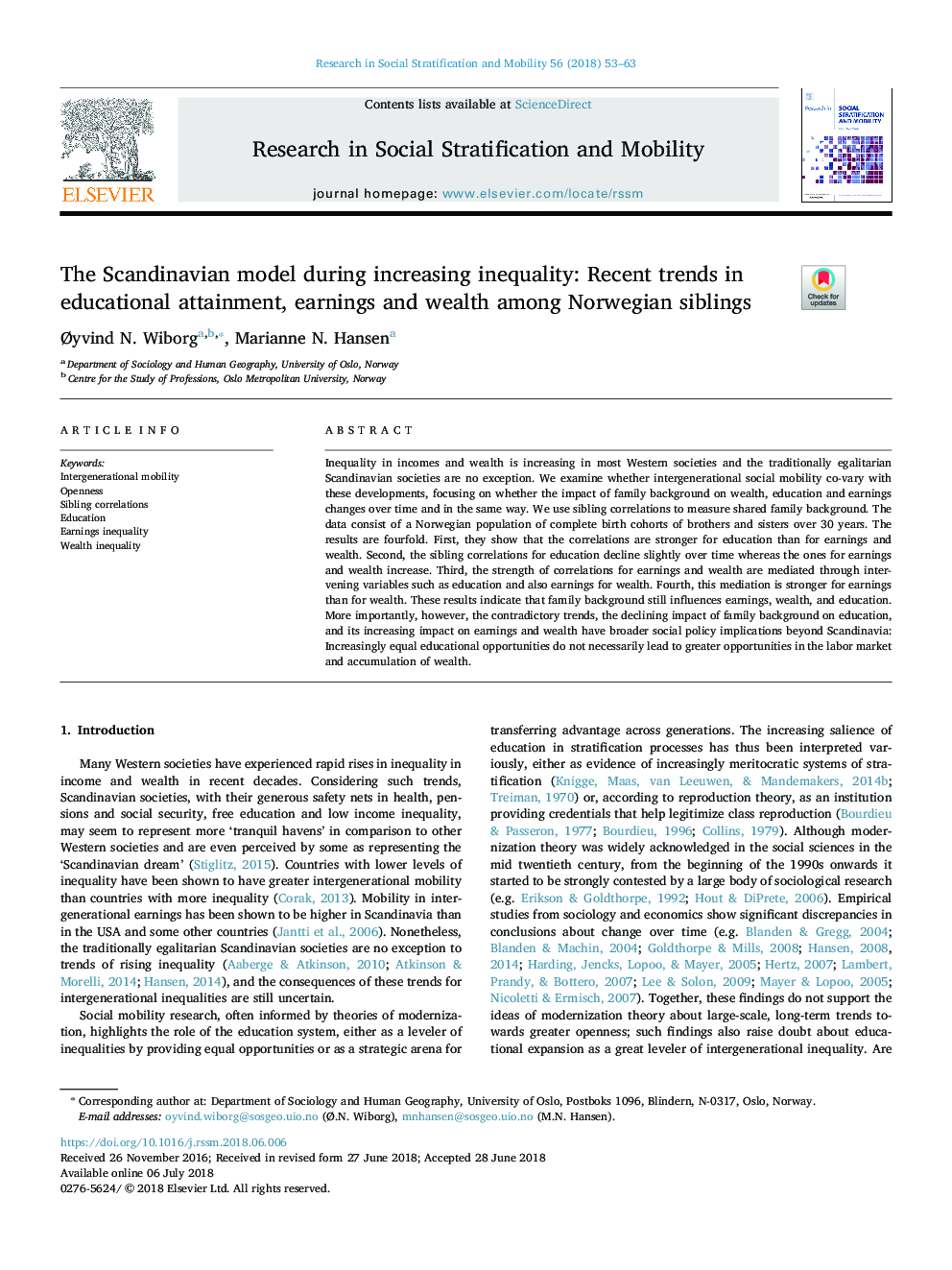| Article ID | Journal | Published Year | Pages | File Type |
|---|---|---|---|---|
| 7409838 | Research in Social Stratification and Mobility | 2018 | 11 Pages |
Abstract
Inequality in incomes and wealth is increasing in most Western societies and the traditionally egalitarian Scandinavian societies are no exception. We examine whether intergenerational social mobility co-vary with these developments, focusing on whether the impact of family background on wealth, education and earnings changes over time and in the same way. We use sibling correlations to measure shared family background. The data consist of a Norwegian population of complete birth cohorts of brothers and sisters over 30 years. The results are fourfold. First, they show that the correlations are stronger for education than for earnings and wealth. Second, the sibling correlations for education decline slightly over time whereas the ones for earnings and wealth increase. Third, the strength of correlations for earnings and wealth are mediated through intervening variables such as education and also earnings for wealth. Fourth, this mediation is stronger for earnings than for wealth. These results indicate that family background still influences earnings, wealth, and education. More importantly, however, the contradictory trends, the declining impact of family background on education, and its increasing impact on earnings and wealth have broader social policy implications beyond Scandinavia: Increasingly equal educational opportunities do not necessarily lead to greater opportunities in the labor market and accumulation of wealth.
Related Topics
Social Sciences and Humanities
Economics, Econometrics and Finance
Economics, Econometrics and Finance (General)
Authors
Ãyvind N. Wiborg, Marianne N. Hansen,
